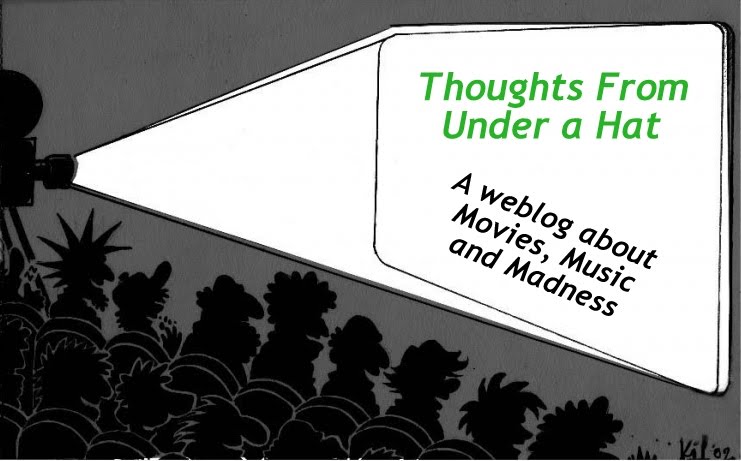Terrence McDonagh is a deranged, drug addicted cop, whose very life seems to be based on spiraling himself deeper and deeper into the reefer madness. He misuses his powers as policeman to steal drugs from the evidence room in the police station. He tortures wheelchair-bound old ladies for information. He "arrests" teen couples, takes their drugs, lets the girl preform sexual favors on him in exchange for his silence and then forces the boy to watch at gunpoint.
You have just been introduced to the hero of the movie. I remember thinking to myself: "Is this guy good or bad?". And then I remembered: "Wait, this is a Werner Herzog film. He doesn't do puny stuff like morality". And it shows: when McDonagh decides to kick the habit, his entire destructive life comes crashing down on him. It's not until he starts pumping anything slightly mind-altering he can find into his body again that everything (almost magically) works out. Some movies might not give a good example, but this one is not even trying.
The movie is, as was to be expected, strange beyond belief. It's also shocking, vulgar and as amoral as movies get these days. Needless to say, I absolutely loved it. Weird as it might be, the movie is also screamingly funny. I rarely pause a movie because I am laughing so hard that I'm afraid I might miss something, but The Bad Lieutenant managed it. The scene in question involved Nicolas Cage acting opposite two imaginary iguanas. Yes, the iguanas of his imagination.
You have just been introduced to the hero of the movie. I remember thinking to myself: "Is this guy good or bad?". And then I remembered: "Wait, this is a Werner Herzog film. He doesn't do puny stuff like morality". And it shows: when McDonagh decides to kick the habit, his entire destructive life comes crashing down on him. It's not until he starts pumping anything slightly mind-altering he can find into his body again that everything (almost magically) works out. Some movies might not give a good example, but this one is not even trying.
The movie is, as was to be expected, strange beyond belief. It's also shocking, vulgar and as amoral as movies get these days. Needless to say, I absolutely loved it. Weird as it might be, the movie is also screamingly funny. I rarely pause a movie because I am laughing so hard that I'm afraid I might miss something, but The Bad Lieutenant managed it. The scene in question involved Nicolas Cage acting opposite two imaginary iguanas. Yes, the iguanas of his imagination.
These iguanas. They have to be my favorite iguanas ever.
Werner Herzog only seems to make fiction films about one type of person: the deranged man who nevertheless is very smart. Aguirre from The Wrath of God, Fitzcarraldo from the movie of the same name and now McDonagh all want to achieve... well, something. They definitely have the brains, the charisma and the guts for it, but are all hindered by being criminally insane. This very special kind of insanity is a staple of Herzog, and it's literally impossible to get if you've never seen one of his films.
You can take that as both a recommendation or a warning. This movie is made by two very gifted artists of whom it is almost a miracle they never worked together before: Werner Herzog and Nicolas Cage. Herzog directs like crazy (it might, in fact, just be my favorite movie of his), and Cage delivers one of the best performances of his life. You'll just have to wonder whether you are interested in watching them deliver a shot of pure madness into your spinal column. If that idea appeals to you in the slightest, consider this a huge recommendation. Everybody else: stay far, far away from this. Your brain might melt.
Alias
Is this song just a very bad joke? Yes. Apologies. But I, once again, couldn't help myself. Also, it IS a pretty tune.
The Verve - The Drugs Don't Work
Geüpload door droogirico. - Muziek video's, interviews met artiesten, concerten en meer.
Is this song just a very bad joke? Yes. Apologies. But I, once again, couldn't help myself. Also, it IS a pretty tune.
The Verve - The Drugs Don't Work
Geüpload door droogirico. - Muziek video's, interviews met artiesten, concerten en meer.
